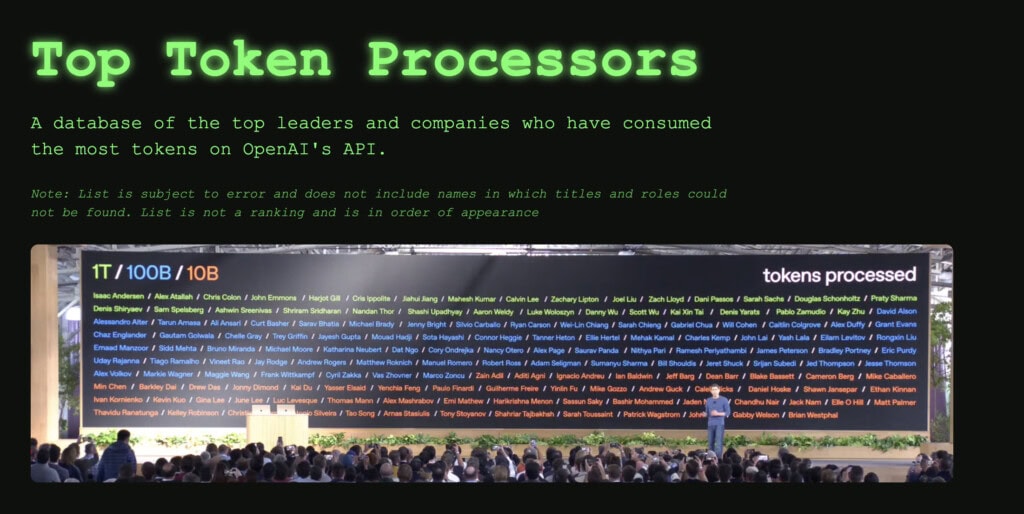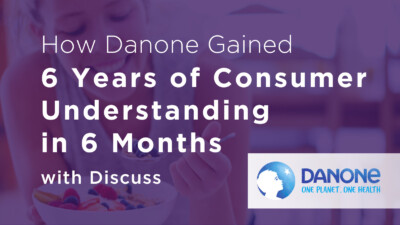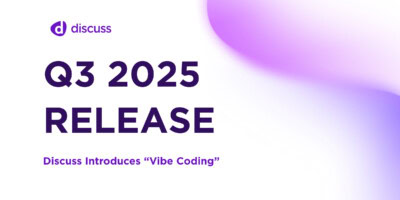Garbage at Scale: Why AI-Only Qual Research Misses the Mark

At Quirks NYC, Discuss Co-Founder Jim Longo took the stage with Stan Sthanunathan, a legend in the insights industry and Executive Chairman of i-Genie.AI, to talk about what’s changing and what’s worth protecting in qualitative research. The first post in our “Shatter Assumptions” series starts with a truth they both stand by: in qual, scaling without intimacy results in more data with less meaning.
“You can automate everything… and end up with garbage at scale. That’s just putting lipstick on a pig.” – Stan Sthanunathan
The rush of speed
Some teams are starting to automate everything. Let AI write your guide, moderate the interview, and hand you a presentation-ready slides. Done in hours instead of weeks. But if you don’t define the essential human-led aspects of the project, AI could just give you the wrong insights faster.
Why humans still keep the work honest
Automation will save you tons of time with transcripts, categories, and charts. But only humans will:
- Notice when a participant’s tone and words don’t match.
- Follow a tangent because they sense it matters.
- Push past the first answer to get to the real one.
- Pick up on what the consumer didn’t say.
Being able to draw on our lived experience and emotional intuition makes all the difference when it comes to consumer closeness.
Blending the best of both
“This agentic world we live in is transforming us,” Jim said, “but there needs to be human oversight.” Let AI scale the process and help us detect patterns. And let people continue to bring empathy, context, and the ability to connect the dots in ways no model can.
A strong approach uses:
- AI-led interviews when reach and consistency matter most.
- Human-led sessions when nuance and emotion are the priority.
- A human check before anything gets acted on.
A quick reminder from the stage
Stan’s lipstick-on-a-pig line got a laugh at Quirks, but it’s more than a joke. Even the fastest results are worthless if the inputs are bad. Start with the person behind the answer, then let technology help you go further.
How Discuss approaches it
With a million-plus qualitative sessions in nearly 150 countries under our belt, we’ve learned how to make AI and human expertise work together. Our AI Interview Agent conducts conversations naturally, adapts in real-time, and operates 24/7. When you need human connection, live moderation is built in and backed by the same qual DNA.
Final thought
Instead of thinking AI is here to take your seat at the table, let it give you more room to do what only you can. Before you hand the whole process over to AI, ask yourself: are you building better insight, or just producing garbage at scale?
In the next Shatter Assumptions post, we’ll explore why even when AI makes research faster, speed without strategy can be dangerous.
Ready to unlock human-centric market insights?
Related Articles

Research Reinvented: Forrester on why researchers won’t be replaced by AI
This is the last article in our five-part series based on the webinar we hosted with Forrester and Quadrant Strategies,…
This is the last article in our five-part series based on the webinar we hosted with Forrester and Quadrant Strategies,…

Research Reinvented: Scaling global qualitative research without losing the human touch
This is the fourth article in our five-part series based on the webinar we hosted with Forrester and Quadrant Strategies,…
This is the fourth article in our five-part series based on the webinar we hosted with Forrester and Quadrant Strategies,…

10 Billion Tokens Later: Why Discuss Was Recognized by OpenAI and What It Means for the Future of Qualitative Research
10 Billion Tokens Later: Why Discuss Was Recognized by OpenAI and What It Means for the Future of Qualitative Research…
10 Billion Tokens Later: Why Discuss Was Recognized by OpenAI and What It Means for the Future of Qualitative Research…



